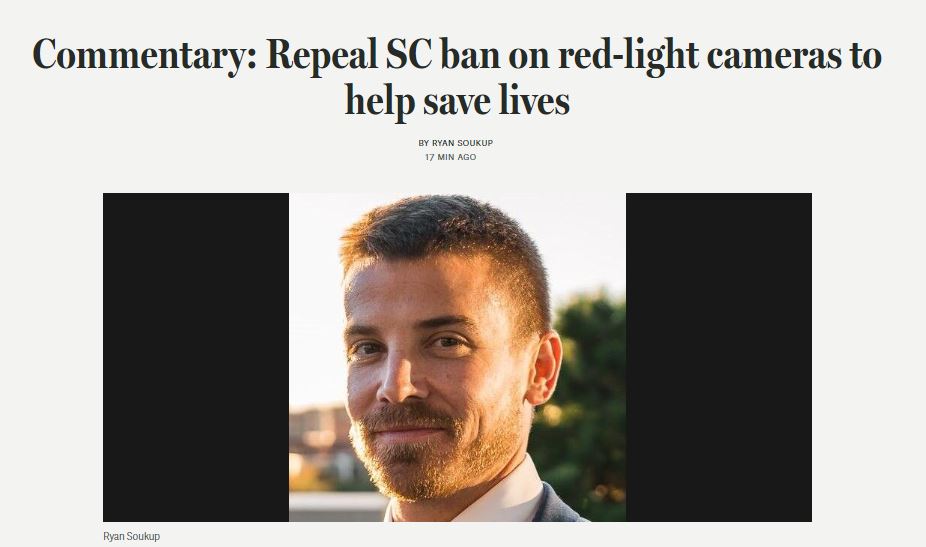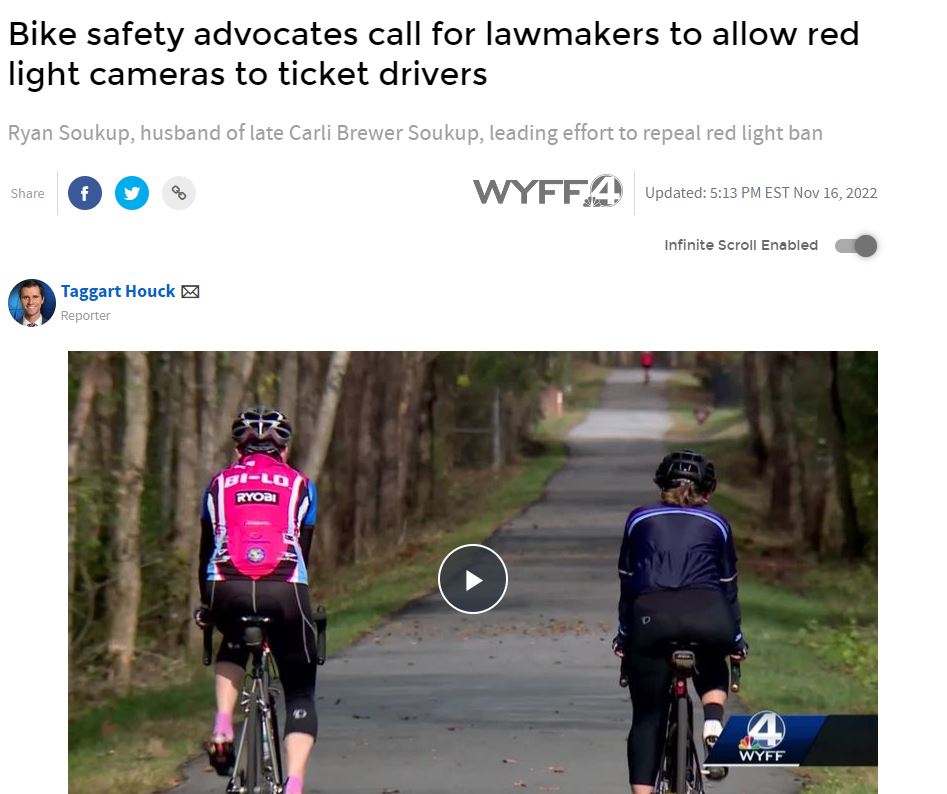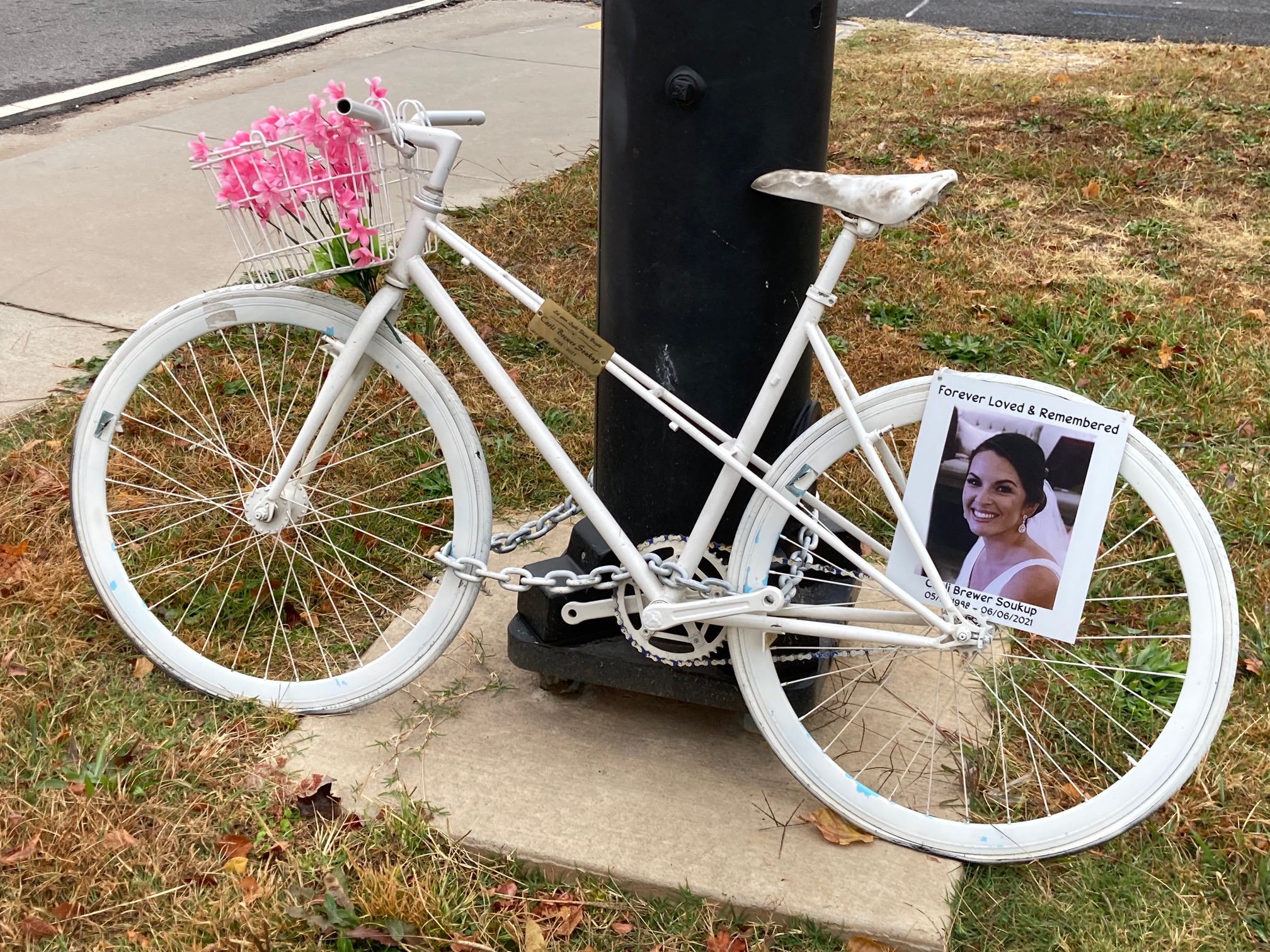Post and Courier Commentary by Ryan Soukup November 13, 2022

Few South Carolinians know that red light cameras were made illegal in the state in 2010. While the red light camera ban may be in keeping with this state’s tendency to lean toward the “less is more” approach to the public road system, I don’t believe that it’s for the better.
I was actually one of the many unaware of the ban until recently. It wasn’t until I lost my wife, Carli Brewer Soukup, to a driver running a red light that I found out. My belief is that her death—and those of countless others—may have been prevented had the relationship between drivers and red lights in this state been different. It’s also my belief that red light cameras would change this relationship for the better, forcing drivers to consider consequences when approaching an intersection.
The numbers speak for themselves. Per the US Department of Transportation, South Carolina had the nation’s highest fatality rate per vehicle mile driven in 2020. There were over 6000 crashes between motorists and vulnerable road users resulting in 800 deaths between 2018 and 2021 according to South Carolina Department of Public Safety data. Of the 9 states in the Southeast, SC shares the honor of being 1 of only 2 with a traffic light camera ban. The other state? Mississippi—the state with the second highest fatality rate (perhaps unsurprisingly). It’s not like those paying the price are disproportionately those violating the traffic laws, either. According to the IIHS, 50% of those killed in 2020 were either pedestrians, cyclists, or passengers in other vehicles. Like Carli, they were victims of another driver’s negligence whose only fault was assuming that others obeyed the law.
There are, however, some hopeful numbers. According to an IIHS study, automated enforcement by cameras has been proven to reduce fatal red light accidents by over 20%, which could have saved over 160 lives in SC over the past four years. Additional IIHS studies across the nation have shown rates of non-fatal incidents at signalized intersections decreased by even more when cameras were installed.
Given that our cities and towns are struggling to maintain fully-staffed police departments and traffic is only increasing, allowing for automated enforcement would help ease the burden on the police force while increasing safety.
There is often no consequence to breaking the traffic laws in our state, and this needs to change. Laws without enforcement are meaningless, and the existing legislation simply hampers the state’s ability to enforce red light laws that are in place to protect its citizens.
I strongly urge you to play a part in improving the safety of our streets by contacting your SC state legislators now and urging them to repeal the prohibition on automated enforcement. Though it’s too late to save one life that meant the world to me, it’s not too late to save others.
Ryan Soukup lives in Greenville, where he works as an engineer. He is a cycling enthusiast and a longtime user of Greenville’s Swamp Rabbit Trail who began advocating for road and trail safety after losing his wife to a cycling accident at an intersection of the trail in 2021.
Contact your SC State Legislators now and urge them to repeal the prohibition on automated enforcement. https://www.scstatehouse.gov/legislatorssearch.php\
Taggart Houck with WYFF News 4 reported on this advocacy on November 16th



Thanks to Tim Simpson, Jr for producing this video.